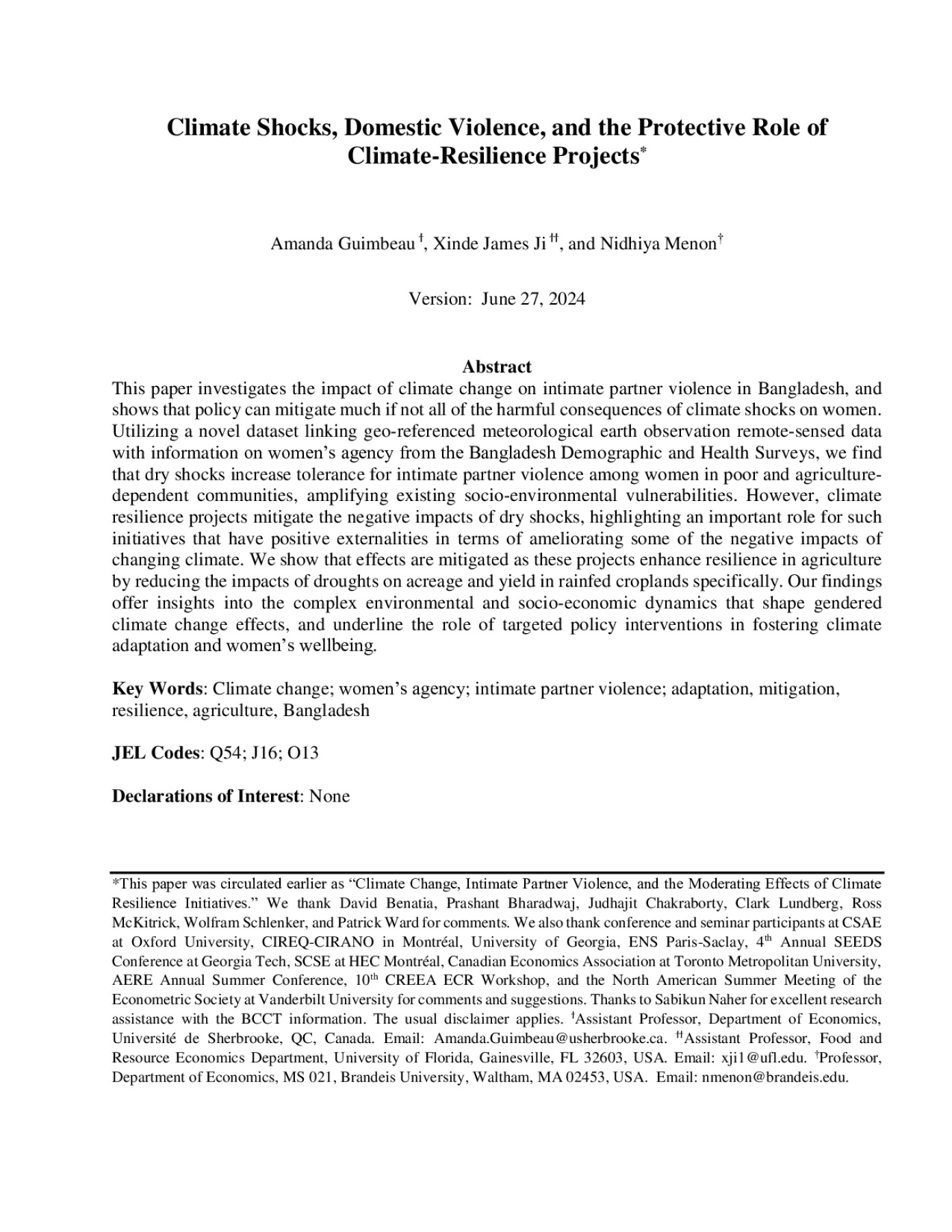2024 North American Summer Meeting: June, 2024
Climate Shocks, Domestic Violence, and the Protective Role of Climate-Resilience Projects
Amanda Guimbeau, Xinde James Ji, and Nidhiya Menon
This paper investigates the impact of climate change on intimate partner violence in Bangladesh, and shows that policy can mitigate much if not all of the harmful consequences of climate shocks on women. Utilizing a novel dataset linking geo-referenced meteorological earth observation remote-sensed data with information on women’s agency from the Bangladesh Demographic and Health Surveys, we find that dry shocks increase tolerance for intimate partner violence among women in poor and agriculture-dependent communities, amplifying existing socio-environmental vulnerabilities. However, climate resilience projects mitigate the negative impacts of dry shocks, highlighting an important role for such initiatives that have positive externalities in terms of ameliorating some of the negative impacts of changing climate. We show that effects are mitigated as these projects enhance resilience in agriculture by reducing the impacts of droughts on acreage and yield in rainfed croplands specifically. Our findings offer insights into the complex environmental and socio-economic dynamics that shape gendered climate change effects, and underline the role of targeted policy interventions in fostering climate adaptation and women’s wellbeing.
Preview








































































